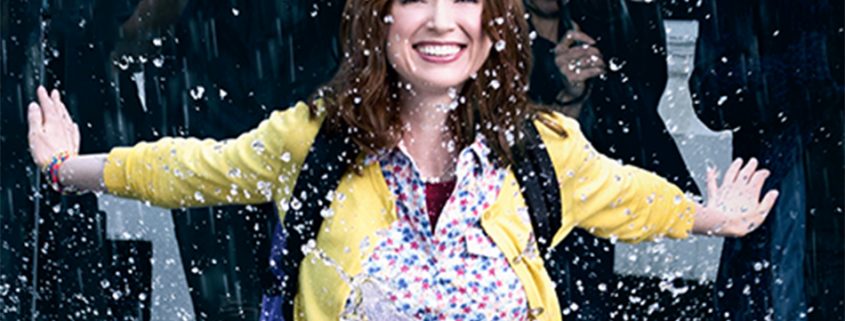Kimmy Schmidt returns with familiar humor
If season one was more about Kimmy, played by Ellie Kemper, rediscovering the world, season two of Unbreakable Kimmy Schmidt is more about Kimmy and the rest of the characters adapting to unfamiliar situations. This is especially true for Kimmy, who eventually winds up in the care of a therapist with a drinking problem, played by Tina Fey, who helps Kimmy cope with some of the problems that she’s struggling to deal with after going through a dark period in her life. Kemper does a wonderful job by keeping Kimmy’s innocence while adding a tinge of darkness to it. Her naiveté and stuck-in-the-’90s personality is still great material for big laughs, but she’s not as naïve as she was last season. This works well in the new season, as it draws attention to the consequences of Kimmy’s insistence to help others while putting her own happiness on hold. It’s a difficult but utterly hilarious process that keeps the show fresh and charming and adds layers to Kimmy’s instantly lovable character.
While there is more of a focus on how Kimmy helps herself, there’s still more than enough room for the other characters’ antics as well. Jane Krakowski returns as Jacqueline White — a surprisingly very well-rounded character this time around. After last season, where she made the transition from a stereotypical rich socialite to a middle-aged divorced woman who is more in-touch with her Native American roots, Jacqueline struggles to find who she is. Krakowski does an incredible job to the point where she almost upstages Kemper. Nearly every scene she’s in is filled to the brim with gut-busting laughs due to her comedic timing and heartfelt moments as she slowly finds the strength to become a self-assured, independent woman. While Krakowski’s performance is still very reminiscent of her character Jenna Maroney on 30 Rock, Krakowski does it so effortlessly to the point where it seems like she’s not even acting at all.
One of the more lovable but loathsome characters, Titus Andromedon, played by Tituss Burgess, loses a bit of his unredeeming aspects as a character as he charts new territory in a steady relationship with his new boyfriend Mikey. Burgess still maintains that pizzazz that immediately draws attention to his character, but he expands his range more by showing Titus’s vulnerability. It’s very sweet, and he reveals a side of Titus never seen before. He’s still the down-on-his-luck and flamboyant character that is one of the show’s main sources of laughter like he was last season, but his character, like others in the show, deals with more serious topics.
Even a character like Lillian Kaushtupper (played by Carol Kane) who was mainly used for comedic effect in season one, becomes more of a focal point with her fight against gentrification. Her tendency to drift into the realm of absurdity with her humor find a more suitable place this season. She’s no longer seen as just the crazy lady who is reliable for a good laugh, but as someone who can provide just as much laughter while tackling the pressures of seeing the neighborhood she’s grown up in slowly be lost to a younger, richer crowd.
This season never gets too serious; quite the opposite, in fact, since a lot of the more serious topics in the season would be alienating without the quick-witted humor that moves at a rapid pace. Despite being a comedy, this show can’t be watched passively or without undivided attention, since most of the plays on words, visual humor and “high-brow” jokes that are distinctive of Fey’s comedy are everywhere this season. Everything from female empowerment to confronting feelings of repressed homosexuality is dealt with in the newest season, and it gives the show a feeling of purpose. Last season was able to coast by on its charm and humor, and while these two aspects are definitely not in short supply this season, the characters tackling more important issues in their lives give the audience a reason to really care about them. Without being too heavy-handed, the characters resolve fundamental problems in their lives that make them better people in the end. They’re no longer one-dimensional, and this type of development for a comedy series is impressive.
This season stayed true to what worked in the previous and didn’t hesitate to move into unknown territory with deeper plotlines for the characters. The nonstop laughs will have audiences clutching their sides by the end of the episodes, but it will also earn their respect and admiration for making smart and conscious commentary on controversial issues and subjects through the use of its humor. When the lingering laughter has stopped, audiences will remember the positive outlooks on timeless issues that this season provided in addition to some of the funniest material that’s been made in a while.

